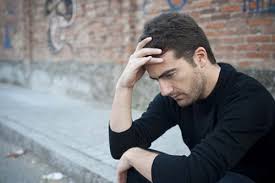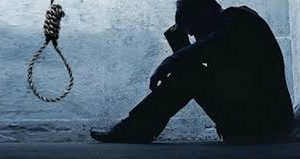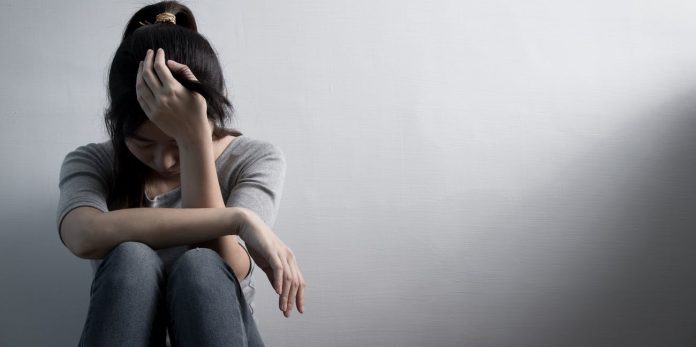Depression is considered a mood disorder that reasons for the chronic feeling of unhappiness as well as the loss of interest. Also called a primary depressive disease or clinical depression, it impacts how you experience, think, and behave and may lead to quite a few emotional and physical problems.
You may additionally have trouble doing regular daily activities, and sometimes you can feel as though life is not worth living. More than only concerning the blues, melancholy isn’t a weakness, and you won’t be able to simply “snap out” of it. Depression may additionally require long-time period treatment. But don’t get discouraged. Most humans with depression feel better with medication, psychotherapy, or both.
Symptoms of Depression

Although depression may occur best once throughout your life, humans usually have multiple episodes. During those episodes, signs, and symptoms are taking place most of the day, nearly every day and might include:
- Sadness, tearfulness, emptiness or hopelessness
- Angry outbursts, irritability or frustration, even over small matters
- Loss of hobby or satisfaction in maximum or all regular activities, along with sex, pastimes or sports
- Sleep disturbances, consisting of insomnia or slumbering too much
- Tiredness and absence of energy, so even small obligations take more effort
- Reduced urge for food and weight reduction or expanded cravings for meals and weight gain
- Anxiety, stirring or restlessness
- Slowed thoughts and body movements
- Worthlessness or blame, fixating about the past screw-ups or self-blame
- Trouble thinking, concentrating, making selections and remembering things
- The frequent or recurrent mind of death, suicidal thoughts, suicide attempts or suicide
- Unexplained bodily problems, including backache or headaches
For many humans with depression, symptoms typically are severe sufficient to noticeable motive troubles in day-to-day sports, for example, in the work, school, social events, or relationships with other people. Some people may sense typically miserable or sad without virtually understanding why.
Symptoms of Depression in Children

Common signs and signs and symptoms of depression in kids and teenagers are much like those of adults, but there may be some differences.
- In children, signs of depression might include sadness, irritability, clinginess, worry, aches, and pains, refusing to travel to school or else being underweight.
- In teens, signs may include sadness, irritability, feeling negative and worthless, anger, terrible overall performance or terrible attendance at school, feeling misunderstood and extraordinarily sensitive, the use of recreational tablets or alcohol, ingesting or dozing too much, self-harm, lack of interest in regular sports, and avoidance of social interaction.
Symptoms of Depression in Adults

Depression is not a normal part of developing older, and it should by no means be taken lightly. Unfortunately, depression regularly is going undiagnosed and untreated in older adults, and they’ll sense reluctant to are seeking help. Symptoms of depression may be different or less apparent in older adults, which include:
- Memory difficulties or character changes
- Physical aches or pain
- Fatigue, loss of appetite, sleep issues or loss of hobby in sex — no longer because of a medical condition or medication
- Often wanting to live at home, as opposed to going out to socialize or doing new things
- Suicidal wondering or feelings, particularly in older men
When to See a Medical Doctor
If you feel depressed, make an appointment to see your medical doctor or mental health expert as soon as you can. If you’re reluctant to are seeking treatment, communicate to a friend or cherished one, any fitness care professional, a religious leader, or a person else you trust.
Diagnosis of Depression

There is not a “despair test” a health practitioner can use to see when you have it, so figuring that out frequently starts evolved with a thorough history and bodily exam. Your health practitioner will need to know:
- When your signs and symptoms started
- How long they’ve lasted
- How extreme they are
- If melancholy or other mental ailments run for your family
- If you have got a history of drug or alcohol abuse
You’ll also be asked if you’ve got had similar signs and symptoms of despair before, and if so, how it changed into treated.
Treatment of Depression
If your physician regulations out a physical reason for your symptoms, he may start you on a treatment or refer you to a mental health professional. This specialist will parent out the fine path of remedy. That may encompass medicines (which includes antidepressants), a type of therapy referred to as psychotherapy, or both.
Warning Signs of Suicide with Depression

Depression causes a high threat of suicidal depression. suicidal depression or intentions are serious. Warning symptoms include:
- A surprising switch from sadness to intense calmness, or acting to be happy
- Always speaking or thinking about death
- Clinical depression (deep disappointment, lack of interest, trouble drowsing and eating) that gets worse
- Taking dangers that might lead to death, which includes driving via red lights
- Making comments approximately being hopeless, helpless, or worthless
- Putting affairs in order, like tying up loose ends or converting a will
- Saying matters like “It would be greater if I have not been here” either “I would like to have out.”
- The conversation about the suicide
- Calling close together friends as well as their loved ones
If you or someone you know suggests any of the above warning signs and symptoms, name your nearby suicide hotline, contact a mental health care professional at once, or go to the emergency department.
Takeaway
If you or a person you realize is having suicidal thoughts or feelings, get help proper away. It’s critical to recognize that feeling depressed doesn’t mean you have got depression. That condition entails not only adjustments in mood, but also modifications in sleep, energy, appetite, concentration, and motivation.
If you have physical signs and symptoms like those and discover your self-feeling depressed a good deal of the time for days or weeks, see your doctor. If you are severely depressed or have the suicidal mind, tell your number, one care doctor, psychiatrist, or therapist. You may want to be hospitalized for supervised treatment to reduce the chance of suicide.

